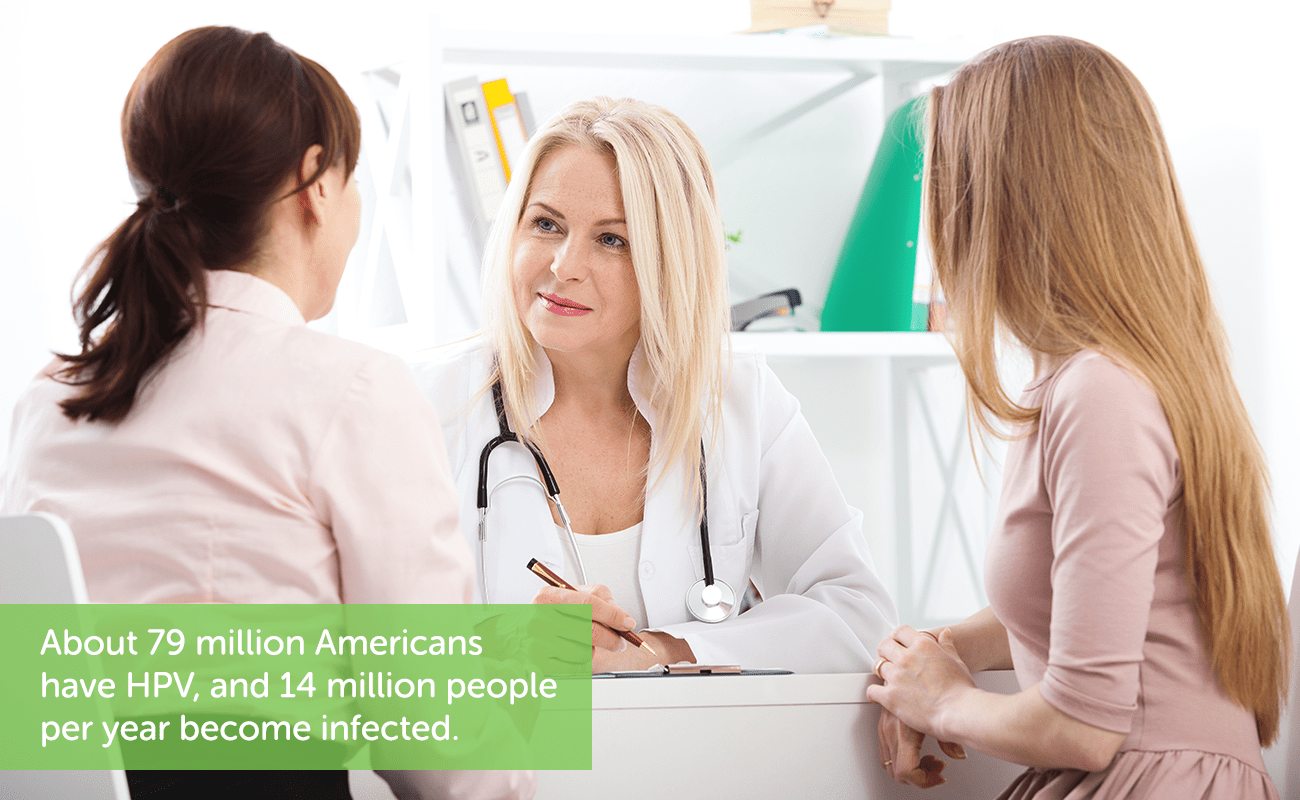What If You Could Protect Your Child from Cancer?

There are a lot of conflicting messages out there about the HPV vaccination. It’s time to set the record straight and get the facts about protecting your child from HPV-related cancers.
What does the vaccine prevent?
The HPV vaccine protects against the human papillomavirus or HPV, which can lead to cancer. About 79 million Americans have HPV, and 14 million people per year become infected.
If my child gets HPV, they could get cancer?
HPV can cause various types of cancer in both men and women, including anal, vulvar, penile, oral, and vaginal cancers. Women are most likely to get cervical cancer, whereas in men, the cancer is most likely to involve the back of the throat. The HPV vaccine can prevent more than 90 percent of HPV-related cancers.1
When should my child get vaccinated?
Your child should be vaccinated for HPV between ages nine and 13 years because this is when they will have the best immune response. During these years, preteens and teens will also get the tetanus, diphtheria, and whooping cough (Tdap) and meningococcal vaccines to make sure they are protected before their likelihood of exposure to these viruses increases.2
But is the HPV vaccine safe?
Since the HPV vaccine was licensed, it has been given more than 120 million times. The Centers for Disease Control and Prevention (CDC) and the Food and Drug Administration (FDA) closely watch for negative side effects and reactions to the vaccine, and publicly report any safety concerns. To date, the vaccine has been found to be safe and effective.
As with any vaccine, there are possible side effects like pain at the injection site, fever, dizziness, headache, or muscle pain. These side effects are associated with almost any adolescent vaccine.
I thought the HPV vaccine was only for girls.
Anyone can get and transmit HPV so it’s important to vaccinate both boys and girls to protect them from cancer.
Why should I vaccinate my child now if they won’t be exposed to the virus for many years?
Children who get the vaccine between the ages of nine and 13 have a better immune response to the vaccine and are better protected against future infection. Studies show that the children who were vaccinated 10 years ago are still highly protected against the virus today.3
Get more information from CDPHP about the HPV vaccine, preventive visits and other health topics to help you and your family live your healthiest lives.
¹ https://www.cdc.gov/hpv/parents/cancer.html
² https://www.cdc.gov/vaccines/parents/by-age/years-11-12.html
³ https://www.cdc.gov/hpv/parents/vaccinesafety.html
 The Daily Dose
The Daily Dose
Comments are closed.